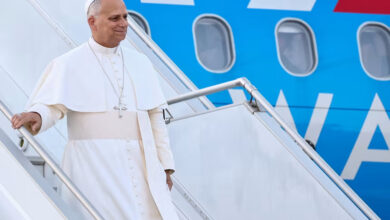Beirut — Lebanese leaders have intensified efforts to form a government after nearly four months of stalemate over cabinet positions.
Prime Minister designate Najib Mikati met President Michel Suleiman on Wednesday, their third meeting this week, to try to reach a compromise over the post of interior minister, a main point of disagreement.
Lebanon has been without a functioning government since Hizbullah and its allies toppled Saad al-Hariri's coalition in January in a dispute over a UN-backed tribunal investigating the assassination of statesman Rafik al-Hariri, Saad's father.
Hariri, who is supported by the West and Saudi Arabia, refused to join Mikati's government, which will be dominated by allies of Hizbullah, a source of concern to Western powers.
Political advisers to the leaders of the Shia Hizbullah and Amal parties also met Mikati this week. Sources said the prime minister designate would meet representatives later on Wednesday from Hezbollah and its Shia, Christian and Druze allies expected to take part in his government.
But the formation of the government has been held up by disagreement over who should hold the interior ministry, which both Suleiman and Christian leader Michel Aoun want for one of their supporters.
In Lebanon's power sharing sectarian system the Shia, Sunni, Druze and Christian leaders get to name their candidates for government positions.
Lebanese official sources said the meeting between Mikati and Suleiman could be decisive for the government's formation. Suleiman also met parliament speaker Nabih Berri.
"There are efforts…Consultations will continue and the atmosphere is positive," one political source said. Other officials echoed his views, though it was not clear what kind of compromise could be reached.
INDICTMENTS
A main aim of the government will be to find a unified stand to face the indictments which will be issued this year by the tribunal investigating Rafik al-Hariri's 2005 killing. The indictments are expected to name members of Hizbullah, although the group denies any link to the killing.
The toppling of Saad Hariri's government after Hizbullah and its allies resigned from it, and their support of Mikati to replace him angered Sunnis, who saw it as Shi'ite interference. Mikati says he is politically neutral.
While the prime minister designate is not limited to a timeframe to form his government, Lebanon's economy has paid a price for the political vacuum.
This year's growth projection has been revised down to 2.5 percent from an earlier projection of 5 percent and caretaker Finance Minister Raya al-Hassan said the state may not be able to cover its expenditure in Lebanese pounds, which includes paying public sector workers.
The political division also blocked the 2010 budget in parliament, preventing the government from spending US$2 billion allocated for much needed infrastructure projects. A 2011 draft budget is also stuck in cabinet.



